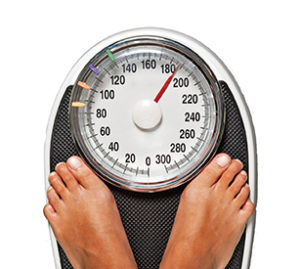Docs vs. Computer, Toddlers and TV, Calcium supplements & your heart, more…
Posted on October 31, 2016 by bob in NewsUCanUse
High-protein diet = Less weight loss benefit
Dieters sometimes consume extra protein to stave off hunger and prevent loss of muscle tissue that often comes with weight loss. But in a study of 34

postmenopausal women with obesity, researchers at Washington U. School of Medicine in St. Louis, MO, found eating too much protein eliminates an important health benefit of weight loss: improvement in insulin sensitivity, critical to lowering diabetes risk. The findings were published in the journal Cell Reports.
The study found women who lost weight eating a high-protein diet didn’t experience any improvements in insulin sensitivity, but women who lost weight eating less protein were significantly more sensitive to insulin at the conclusion of the study. That’s important, because in many overweight and obese people, insulin does not effectively control blood-sugar levels, and eventually the result is type 2 diabetes.
Insulin sensitivity is a good marker of metabolic health, one that typically improves with weight loss. The women in the study who lost weight while consuming less protein experienced a 25 to 30% improvement in their sensitivity to insulin.
Washington U. School of Medicine, St. Louis, MO. Press release provided by ScienceDaily (www.sciencedaily.com/release)
TV at 2, Anti-social at 13?
By age 13, children who watch too much television are at risk of victimization, social isolation, and adopting violent and antisocial behavior toward

other students. This is the findings of a new study, done at the U. of Montreal’s School of Psychoeducation, that set out to examine the long-term affect of TV during toddlerhood on later development of peer relationships, positive social identity, and getting along well with others.
“Children who watched a lot of television growing up,” said the study’s principal investigator, “were more likely to prefer solitude, experience peer victimization, and adopt aggressive and antisocial behavior toward their peers at the end of the first year of middle school.”
The study noted that the transition to middle school is a crucial stage in adolescent development, also observing that too much TV viewing at age 13 tended to pose additional risks of social impairment.
U. of Montreal, Sainte-Justine Research Center, a mother-child research institution. Press release via Newswise.
Social Isolation: Men and women are different
Male and female mice have similar responses to physical stress, but new research suggests females, not males, feel stressed when alone.

The findings, from the Hotchkiss Brain Institute at the U. of Calgary, Canada, provide further proof that strategies for coping with stress are sex-specific. They also highlight the importance of a social network for females in particular, and pave the way for future research into whether females befriend others as a coping mechanism during stressful situations.
“Many species, including humans, use social interaction to reduce the effects of stress,” said senior author Jaideep Bains, PhD, Professor of Physiology & Pharmacology. “In fact, the lack of a social network may itself be stressful.”
The research suggests young girls are more sensitive to social stress than boys, implying social networks are more important for females in general. The findings raise the interesting question of whether social and environmental changes during the crucial pre-adolescent period could have long-term consequences for how males and females respond to stressful events later in life.
U. of Calgary, Canada. Press release provided by ScienceDaily (www.sciencedaily.com/release)
Physician vs. Computer: Who wins?

Each year, millions of people use Internet programs or apps to check their symptoms or to self-diagnose. Yet how these computerized symptom-checkers fare against physicians has not been well studied. Until now.
According to a new study by researchers at Harvard Medical School, physicians’ performance is vastly superior, and that doctors make a correct diagnosis more than twice as often as 23 commonly used symptom-checker apps. The findings were published recently in JAMA Internal Medicine.
For example, physicians were quicker than the digital platforms in listing the correct diagnosis for a variety of symptoms 72% of the time, compared with 34% of the time for the digital platforms. Despite outperforming the machines, physicians still made errors in about 15 percent of cases. Researchers say developing computer-based algorithms to be used in conjunction with human decision-making may help further reduce diagnostic errors.
Harvard Medical School, Harvard U. Press release via Newswise.
Baby Boomers have stronger work ethic. NOT!
There’s no truth to the popular belief that members of the Baby Boom generation (1946-1964) have a greater work ethic than people born a decade or

two later. This is according to a team of researchers at Wayne State University, Detroit, published in Springer’s Journal of Business and Psychology.
Analysis of 77 different studies and 105 different measure of work ethics found no differences in the work ethic of different generations, including the hours worked and commitment to family and work. The media and academia often suggest Baby Boomers endorse higher levels of work ethic than the younger so-called Generation X (1965-1980) and Millennials (1981-1999).
The economic success of the United States and Europe around the turn of the 20th to the 21st century is often ascribed to the so-called Protestant work ethic of members of the Baby Boom generation They are said to place work central in their lives, to avoid wasting time and to be ethical in their dealings with others. Their work ethic is also associated with greater job satisfaction and performance, conscientiousness, greater commitment to the organization they belong to and little time for social loafing. Study findings don’t support a difference in work ethic between generations.
Wayne State U, Detroit. Press release provided by ScienceDaily (www.sciencedaily.com/release).
Calcium supplements may damage heart

More than half of women over 60 take calcium supplements, many without the oversight of a physician, believing it will reduce their risk of osteoporosis. But after analyzing 10 years of medical tests on more than 2,700 people in a federally funded heart disease study, researchers at Johns Hopkins Medicine and elsewhere conclude that taking calcium in the form of supplements may raise the risk of plaque buildup in arteries and heart damage, although a diet high in calcium-rich foods appears be protective.
In a report on the research, published in the Journal of the American Heart Association, researchers caution their work only documents an association between calcium supplements and atherosclerosis, and does not prove cause and effect. But they say the results add to growing scientific concerns about the potential harms of supplements, and they urge a consultation with a knowledgeable physician before using calcium supplements. An estimated 43% American adult men and women take a supplement that includes calcium, according the National Institutes of Health.
Johns Hopkins Medicine. Press release provided by ScienceDaily (www.sciencedaily.com/release).









